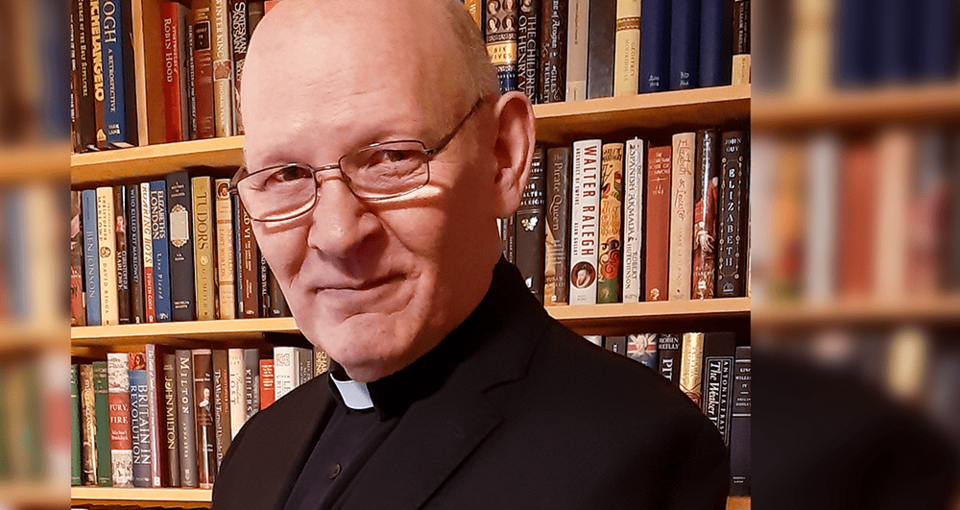Since moving to Toronto in 1987, I had spoken to my parents in London by phone every month or so. Calls were expensive back then so I was surprised when in early summer, 2001, my mum suddenly telephoned. Dad had had a bad stroke.
Flew over that night. There was dad, such a strong and tough man, suddenly a baby again. Vulnerable, immobile. Good, kind medics told us that it was serious, weren’t sure what would happen, no positive signs yet.
We sit by his bed, don’t know what to do. Then my sister comes in, not knowing what to do either. Then my brother-in-law and niece, the same. Five of us, impotent and ignorant. Then a sixth person enters, and she’s different. My younger niece, who bounds in like Disney’s Tigger and jumps on the bed. Then cuddles her grandpa, and falls asleep.
Because this is what she does whenever she visits her grandparents’ house. Why would a strange place with odd sounds and smells be any different? And then, and then, dad show emotion. First time in two days. He cries.
He turns his head, eyes seem to focus, and with super-human effort says a word. My name. Michael. Then again and again. We call for a doctor, who with pristine innocence says, “This wasn’t supposed to happen. It’s like a miracle.”
I should explain that my niece is what is known as handicapped. She’s profoundly autistic, which some people find extremely disturbing. Thing is, that disability has liberated her. She loves unconditionally, and in that gift of unconditional love changed our world. My dad had a 90 percent recovery.
Proof of God and Jesus and Easter? Of course not! I may be a Christian but I’m not a fool, not naïve. No, I tell this story to remind us what the Easter we’ve just celebrated was about.
The problem, of course, is that we live in the midst of clergy abuse scandals, and fierce judgmentalism. But there they are, made especially vivid at Easter. Forgive, embrace, include, empathize, judge yourself before others, give away property, turn the world upside down because it’s systemically unfair, stand with those who need you the most, be with the lost.
I tell this story to remind us what the Easter we’ve just celebrated was about
He’s is the God of losers. Easter isn’t triumphalism, and the divine quintessence of the Jesus narrative is paradox: in death is life, in giving is receiving, in sacrifice is completion.
What Christianity shouldn’t be, but far too often has become, is a moral thermometer. Consider, for example, the issue of sex, which has become an obsession among Christian conservatives. Jesus seems largely indifferent about the subject, and it’s significant that one of the readings in Lent, shortly before Easter week, presents a woman drying Jesus’ feet with her hair. Exotic certainly, erotic perhaps, sensual and intimate for sure. Yet he accepts the actions with praise and then chastises the person—yes, it’s Judas — who condemns what is going on.
The sin, if we use that word, around sexuality is abuse and betrayal. To use another person merely for one’s own pleasure, without care or concern for them. Or adultery, which is more about the heart than the body, and can shatter someone’s trust and self-worth. To reduce all of this to sex alone is simplistic and crass, but that’s what we see so often in Christian circles. We’ve found another culprit, so let’s all feel good about ourselves as we march through the village and scream their name.
The Jesus of Maundy Thursday, Good Friday, and Easter Sunday roared the opposite path. Treat others as you would yourself be treated. To do otherwise is worse than base hypocrisy, it’s a rejection of the very Christian symbiosis, the call to gracious community, that would make the Beatitudes livable.
He died alone and in agony. He owned no property, criticized the wealthy and powerful, gathered the rejected and marginalized around him, detested violence and selfishness, and exposed judgmentalism for the fatal darkness it is. The God of losers, the God of change, the God of children in hospital wards who in their brokenness transform everything and everyone.
That’s my Christ, that’s my Easter. I believe he is risen. I believe he is risen indeed. But if we fail to listen to and fail to try to live by Jesus’s breathtakingly radical teachings, his words are made empty and his ministry becomes a failure. It’s not easy. In fact, it’s incredibly difficult. If you want easy, try a chocolate egg. ◆



